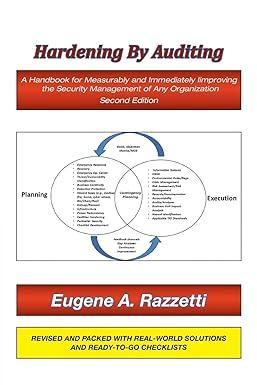Question
CASE 629 Variable and Absorption Costing Unit Product Costs and Income Statements LO61, LO62 OBrien Company manufactures and sells one product. The following information pertains
CASE 629 Variable and Absorption Costing Unit Product Costs and Income Statements LO61, LO62
OBrien Company manufactures and sells one product. The following information pertains to each of the companys first three years of operations:
Variable costs per unit: Manufacturing: Direct materials $32 Direct labor $20 Variable manufacturing overhead $4 Variable selling and administrative $3 Fixed costs per year: Fixed manufacturing overhead $660,000 Fixed selling and administrative expenses $120,000
During its first year of operations, OBrien produced 100,000 units and sold 80,000 units. During its second year of operations, it produced 75,000 units and sold 90,000 units. In its third year, OBrien produced 80,000 units and sold 75,000 units. The selling price of the companys product is $75 per unit.
Required:
- Assume the company uses variable costing and a FIFO inventory flow assumption (FIFO means first-in first-out. In other words, it assumes that the oldest units in inventory are sold first):
a. Compute the unit product cost for Year 1, Year 2, and Year 3.
b. Prepare an income statement for Year 1, Year 2, and Year 3.
2. Assume the company uses variable costing and a LIFO inventory flow assumption (LIFO means last-in first-out. In other words, it assumes that the newest units in inventory are sold first):
a. Compute the unit product cost for Year 1, Year 2, and Year 3.
b. Prepare an income statement for Year 1, Year 2, and Year 3.
3. Assume the company uses absorption costing and a FIFO inventory flow assumption (FIFO means first-in first-out. In other words, it assumes that the oldest units in inventory are sold first):
a. Compute the unit product cost for Year 1, Year 2, and Year 3.
b. Prepare an income statement for Year 1, Year 2, and Year 3.
Assume the company uses absorption costing and a LIFO inventory flow assumption (LIFO means last-in first-out. In other words, it assumes that the newest units in inventory are sold first):
Compute the unit product cost for Year 1, Year 2, and Year 3.
Prepare an income statement for Year 1, Year 2, and Year 3.
Step by Step Solution
There are 3 Steps involved in it
Step: 1

Get Instant Access to Expert-Tailored Solutions
See step-by-step solutions with expert insights and AI powered tools for academic success
Step: 2

Step: 3

Ace Your Homework with AI
Get the answers you need in no time with our AI-driven, step-by-step assistance
Get Started


